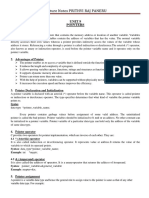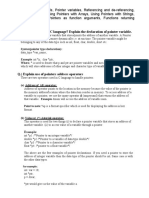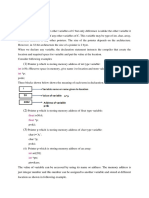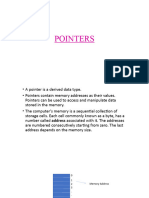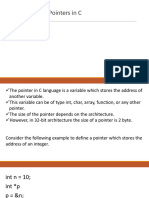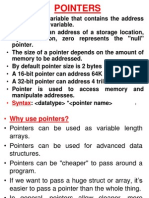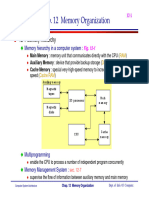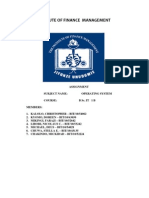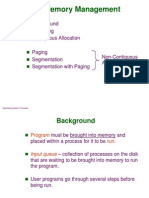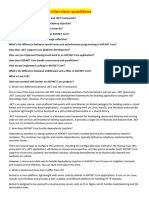0% found this document useful (0 votes)
13 views7 pagesModule 4 Pointers
This document covers the principles of programming using C, specifically focusing on pointers and memory management. It explains the different types of memory (stack, heap, global), the concept of pointers, their advantages, and how to declare and initialize them. Additionally, it discusses pointer arithmetic, comparison, and provides examples of using pointers in functions.
Uploaded by
vsheelavictor1Copyright
© © All Rights Reserved
We take content rights seriously. If you suspect this is your content, claim it here.
Available Formats
Download as PDF, TXT or read online on Scribd
0% found this document useful (0 votes)
13 views7 pagesModule 4 Pointers
This document covers the principles of programming using C, specifically focusing on pointers and memory management. It explains the different types of memory (stack, heap, global), the concept of pointers, their advantages, and how to declare and initialize them. Additionally, it discusses pointer arithmetic, comparison, and provides examples of using pointers in functions.
Uploaded by
vsheelavictor1Copyright
© © All Rights Reserved
We take content rights seriously. If you suspect this is your content, claim it here.
Available Formats
Download as PDF, TXT or read online on Scribd
/ 7



